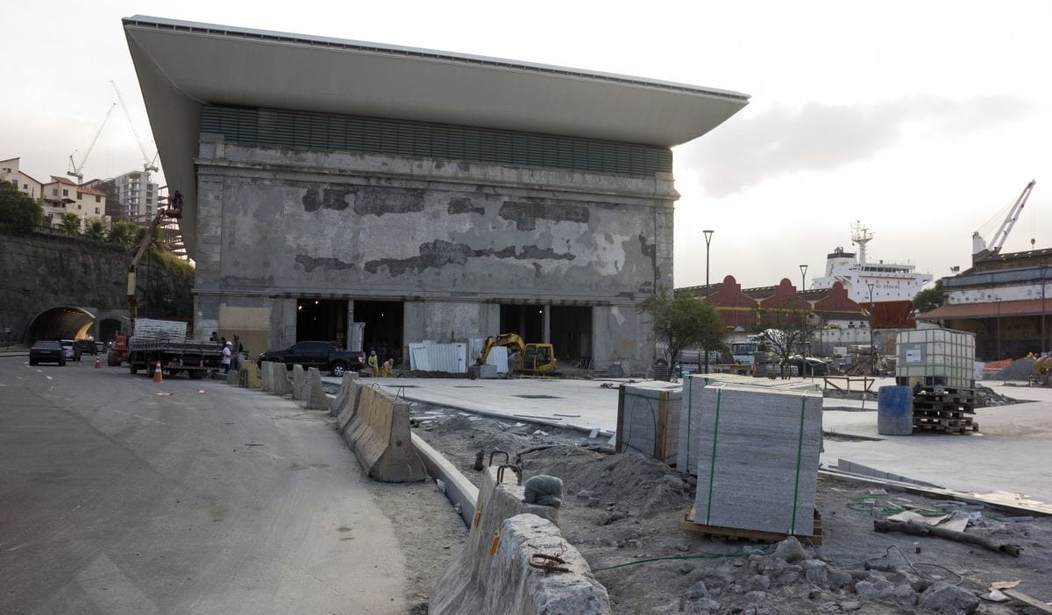When Rio de Janeiro won the right to host the 2016 summer Olympics in 2009, there were many skeptics who believed that a third-world country wouldn’t be able to pull it off.
Those were halcyon days for Brazil. Vast natural resources contributed to a roaring economy and new development was sprouting up all over the country. Incomes were rising and the government, for once, was fairly stable.
But underneath the hype, there was massive corruption. This proved to be the killer for Rio’s success. Many of those vast development projects were never finished or didn’t deliver what they promised. And the government proved to be as corrupt as any institution, leading to the eventual impeachment of President Dilma Rousseff.
The Zika virus is out of control, the economy is collapsing, crime is skyrocketing, public services are being cut, and the state of Rio de Janeiro has declared an economic emergency and is unable to meet its Olympic commitments.
On top of all that, the government is lying about how ready the country is to host the games.
Almost all venues are still under construction. I managed to see part of the Barra Olympic Park, which will host many of the events, after buying a last-minute ticket to a Volleyball World League match. Although construction for the Games is progressing, it appears far from “97 percent complete,” as the organizers claimed recently.
I also saw most of the Deodoro Olympic Park, which is apparently open to anyone who wants to see it. I walked straight in and found half-built grandstands abandoned in the middle of a Friday afternoon.
The few projects that have been completed don’t inspire much confidence. In April, a newly built bike path along Rio’s seashore collapsed, killing two people.
Work on the beach volleyball arena at Copacabana stalled because the organizers failed to get the proper environmental licenses. Then the structure was damaged by waves. Workers erected a six-foot-high sand barrier to protect the site. It also protects thugs; tourists are being mugged behind it. A construction worker told me he’d seen a man stabbed there, and warned me to stay away. The robbers were so comfortable that they had left their backpacks and a beach chair nearby on the sand.
Safety is of great concern to athletes and tourists. They are right to worry. According to local news reports, drug traffickers are involved in territorial disputes in at least 20 Rio neighborhoods.
Eight years ago, the government established the Pacifying Police Units, a heavily armed force that tries to reclaim favelas from the gangs. But these units seem to have worsened the drug war rather than ended it. This year, 43 police officers have been killed in the state, and at least 238 civilians have been killed by the police. The United Nations has said it’s concerned about violence by the military police and the officers in the favelas, notably against children living on the streets. Everybody fears an increase in police violence during the Games. The country will deploy 85,000 soldiers and police officers, about twice the number used in the London 2012 Olympics.
Frequent shootouts near the Olympic arenas and on routes to them are also a concern: 76 people have been hit by stray bullets in Rio so far this year; 21 of them have died. On June 19, more than 20 men carrying assault rifles and hand grenades stormed the city’s largest public hospital to free an alleged drug kingpin in police custody, leaving one person dead and two hurt.
So, if the drug gangs don’t kill you, the police will. Doesn’t Rio sound like a great destination to watch world-class athletes dodging bullets while setting world records?
If the construction is this far behind, what about security? London spent about a billion dollars on security for the 2012 games. Can you really trust the locals to protect a million tourists while drug gangs have turned several areas into shooting galleries?
The games will go on. There will be bitching from tourists, athletes, and officials about the poor quality of the venues. Many things will not work.
But this is par for the course for the Olympics. It’s a massive undertaking made manageable only by the most organized of cities. Rio does not appear to be one of those, which is why you have to hope that the worst that happens will be some inconvenience and delays.









Join the conversation as a VIP Member